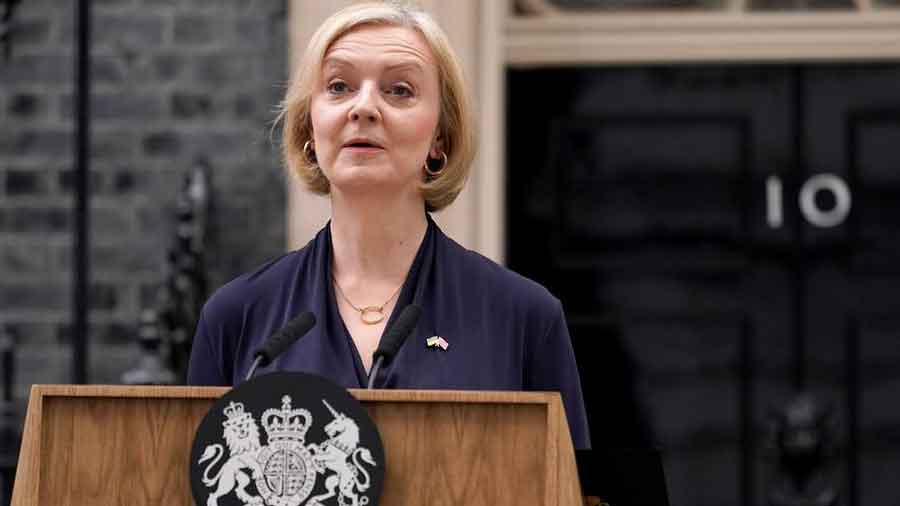The man who was sacked as chancellor of the exchequer after his mini-budget of 23 September triggered turmoil on the markets has claimed that the financial chaos that occurred was mainly Liz Truss’s fault.
Kwasi Kwarteng said Truss wanted to go even faster with her unfunded tax cutting measures even as he was urging the Prime Minister to slow down.
Kwarteng, who was giving his first interview since his dramatic fall from power, told the Rupert Murdoch owned Talk TV: “After the mini-budget we were going at breakneck speed and I said, you know, we should slow down, slow down.”
“She said, ‘Well, I’ve only got two years,’ and I said, ‘You will have two months if you carry on like this.’ And that is, I’m afraid, what happened.”
He added: “I think the prime minister was very much of the view that we needed to move things fast. But I think it was too quick.”
In his analysis, a BBC political correspondent, said: “Liz Truss and Kwasi Kwarteng once looked like a dream combination to lead a Conservative government: freedom-loving tax cutters who wanted to prioritise growth, who also happened to be long-term friends.
“But we know it didn’t work out that way. And now Mr Kwarteng has pointed the finger of blame firmly at his former boss. He claims to have told her to take her foot off the gas after the mini-budget.”
Kwarteng’s mini-budget unleashed a cycle of falling market confidence, flight from British assets, a record fall in the value of the pound against the dollar and such damage to the bond markets that the Bank of England was forced to intervene and start buying gilts.
On 14 October Truss sacked Kwarteng as chancellor after summoning him back from an IMF meeting in Washington.
On 25 October, Truss herself resigned after only 45 days, the shortest period for a Prime Minister.
Kwarteng revealed that he first discovered he had been sacked after seeing a tweet from the political editor of the Times as he drove to a meeting with Truss at 10, Downing Street. “I can’t remember whether she was actually shedding tears but she was very emotional and it was a difficult thing to do. I think she genuinely thought that that was the right thing to buy her more time to set her premiership on the right path. I disagreed, obviously. I thought that if chancellors are sacked by the prime minister for doing what the prime minister campaigned on, that leaves the prime minister in a very weak position.”
He told her: “This is mad. Prime ministers don’t get rid of chancellors.”
The former chancellor said he did not think the prime minister could fire him “just for implementing what she campaigned on” during her summer Tory leadership campaign.
Kwarteng praised Rishi Sunak as a “very credible prime minister” but said he and the new chancellor, Jeremy Hunt, should not attempt to blame him and Truss for all the government’s present problems.
An “autumn statement” is due from Rishi and Hunt on November 17. Before entering Downing Street, Rishi promised to correct the “mistakes” made by his predecessor.
Kwarteng insisted that he and Truss were “still friends” but admitted he had still not returned a missed call from her two days ago. “I will call her back,” he said.
Kwarteng acknowledged he had to “bear some responsibility" for the pace of the changes.
Asked whether he would like to apologise to homeowners facing higher mortgage costs after the mini-budget, he replied: “I don’t want to relive the past, I just want to focus on where we are next week. There was turbulence, and I regret that.”











